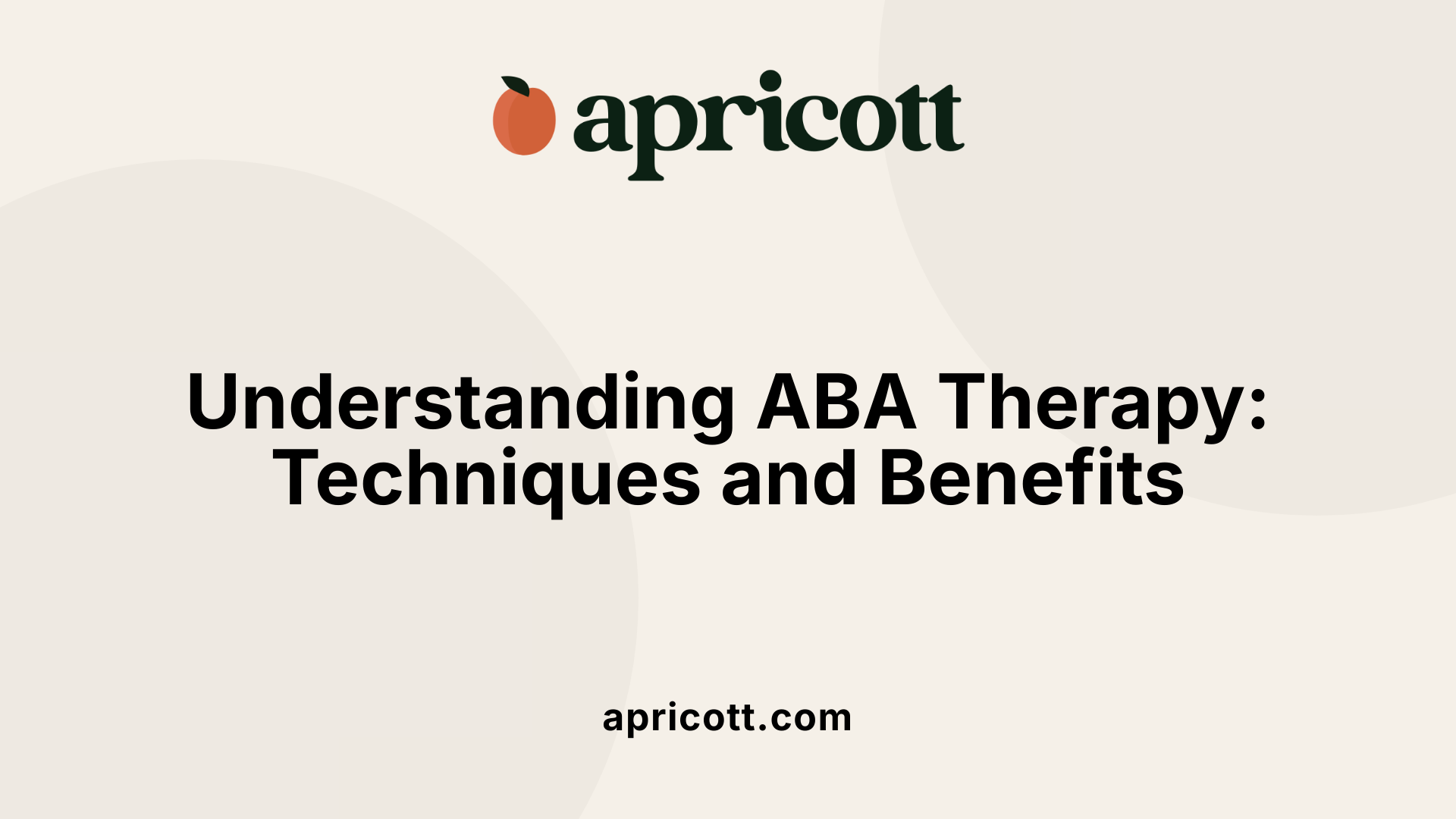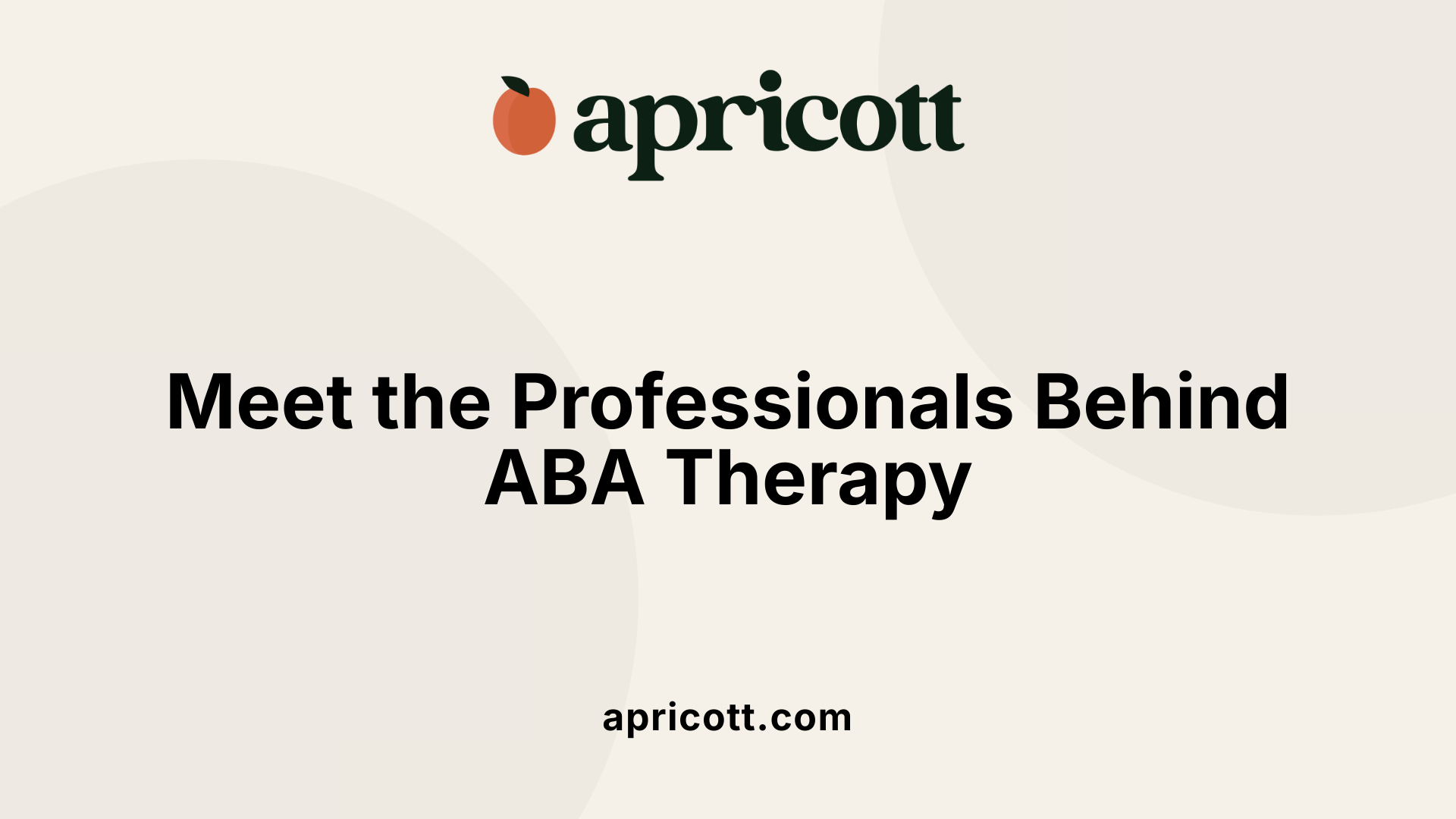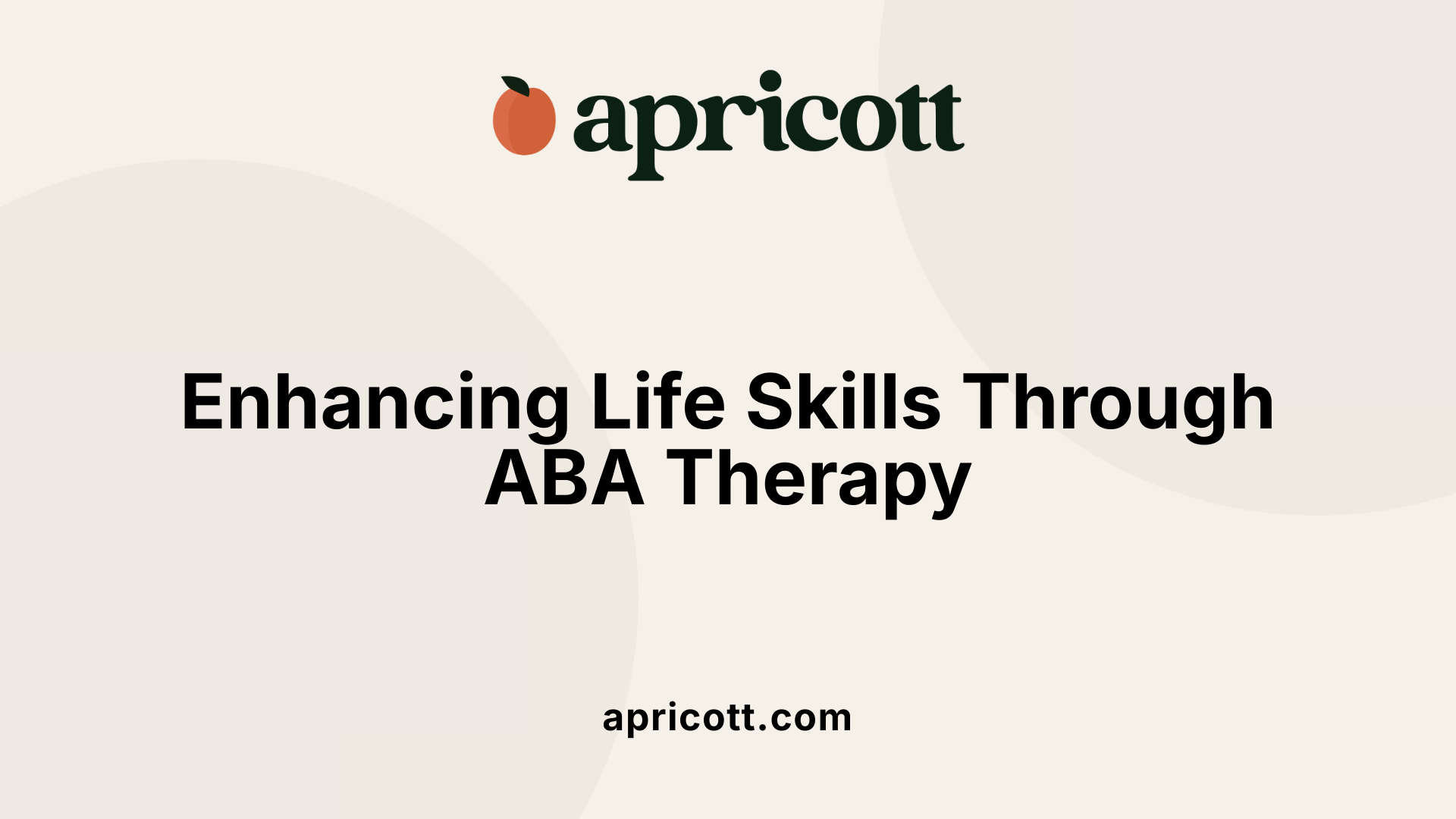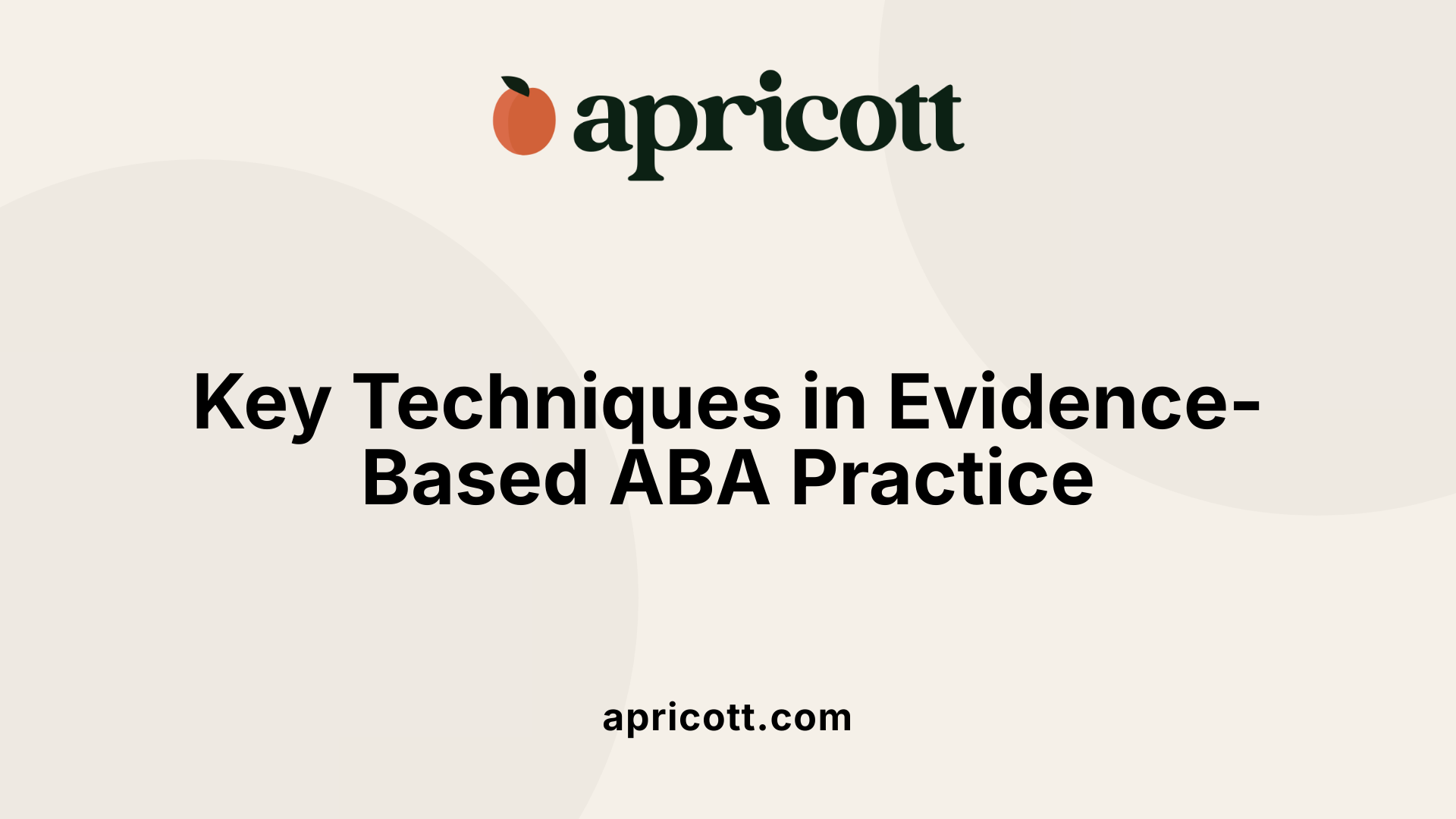December 2, 2025
Exploring Leading BCBA Educational Pathways: Masters and Doctoral Programs
Applied Behavior Analysis (ABA) therapy is a vital approach in supporting individuals with autism and related developmental disorders. At the core of ABA therapy are highly trained professionals such as Board Certified Behavior Analysts (BCBAs), whose expertise stems from rigorous academic training combined with supervised practical experience. This article explores prominent academic programs and schools offering BCBA certification-aligned curricula, focusing on their unique offerings, faculty expertise, and preparation for certification and clinical practice. Understanding these educational pathways is key for prospective students and professionals considering careers in behavior analysis.

Georgia State University provides a Master’s Degree in Applied Behavior Analysis (M.S.) carefully designed to equip students as behavior-analytic scientist-practitioners. Beyond the master’s degree, the university also offers a doctoral program in ABA, presenting students with opportunities for advanced research and direct mentorship from experienced faculty.
The curriculum and program structure adhere strictly to the standards set by the Behavior Analyst Certification Board (BACB) and the Association for Behavior Analysis International (ABAI). This alignment ensures graduates are fully prepared for certification and professional practice in the behavioral analysis field. Significantly, Georgia State's programs are tuned to the evolving accreditation landscape, with ABAI accreditation playing an increased role as the Verified Course Sequence (VCS) system is set to phase out by 2027.
Students enrolled in the Applied Behavior Analysis programs have access to an optional add-on Certificate in ABA Professional Specialization. This certificate features focused areas such as autism and developmental disabilities, preschool and early childhood education, the science of reading, at-risk students, and health literacy. These specializations allow students to tailor their training to particular populations and needs, enhancing their professional versatility and impact.
Faculty at Georgia State University hold expertise in several critical domains within ABA, including autism spectrum disorders, early intervention, verbal behavior, and applications of ABA in educational settings. Many faculty members carry BCBA certification themselves, ensuring that instruction is grounded in both rigorous academic research and practical, ethical clinical experience.
The master’s curriculum totals 36 semester hours and covers essential topics such as behavioral assessment, intervention strategies, ethics, and fundamental behaviorism. This comprehensive coursework spans:
This curriculum structure ensures students gain an in-depth understanding of how environments influence behavior and how to develop and apply effective behavior change strategies.
Georgia State’s ABA program is designed to prepare students for diverse career paths. Graduates can pursue clinical practice, engage in doctoral-level research, or successfully integrate both academic and practice-based approaches. The program emphasizes compassionate, ethical applications of behavior analysis to improve client outcomes.
Faculty support includes research mentorship that allows doctoral candidates to contribute to advancing knowledge in ABA, particularly in areas related to autism and behavior interventions.
| Aspect | Details | Additional Notes |
|---|---|---|
| Degree Type | Master’s Degree (M.S.) and Doctoral Program in ABA | Supports both clinical and research career tracks |
| Curriculum | 36 semester hours including assessment, ethics, and intervention | Emphasizes environmental influences on behavior |
| Certifications Alignment | BACB and ABAI standards | Preparedness for BCBA certification and beyond |
| Certificate Options | ABA Professional Specialization Certificate with various tracks | Autism, early childhood, reading science, at-risk students, health literacy |
| Faculty Expertise | Autism spectrum disorders, early intervention, verbal behavior, education | Many faculty hold BCBA certification |
| Clinical and Research Focus | Ethical and compassionate behavior analysis in practical and research settings | Doctoral mentorship and clinical training opportunities |
Georgia State University’s comprehensive ABA graduate and doctoral programs reflect a robust commitment to advancing the field by developing competent, ethical behavior analysts ready to meet complex challenges in diverse populations.
Felician University offers specialized graduate programs in Applied Behavior Analysis (ABA) and Autism Studies that include both Masters degree options and Post-Master's Certificates. These programs are designed specifically to prepare students for professional roles in behavior analysis with a strong focus on supporting individuals with autism spectrum disorders and developmental disabilities.
The university’s ABA program holds approval as a Verified Course Sequence (VCS) by both the Association for Behavior Analysis International (ABAI) and the Behavior Analyst Certification Board (BACB). This designation ensures that the coursework meets the rigorous standards required for certification and professional practice within the field. Being a VCS program also guides students directly toward eligibility for national certification examinations.
Felician's ABA programs are structured to thoroughly prepare graduates for the Board Certified Behavior Analyst (BCBA) certification. This certification is recognized both nationally and internationally and signifies a standard of professional competence and ethical practice in ABA. Graduates complete fieldwork requirements and coursework strategically aligned with BACB standards, enabling them to pursue certification seamlessly upon graduation.
The curriculum covers a broad array of topics essential to behavior analytic practice. Key courses include assessment methods, educational programming, foundational ABA principles, ethics, advanced behavioral concepts, and intervention strategies. Beyond classroom instruction, the program offers practicum and field experience components, which are indispensable for developing practical skills and meeting certification prerequisites. Supervised fieldwork allows students to apply their knowledge in real-world settings while receiving mentorship and guidance from qualified professionals.
Faculty members within Felician’s programs are certified BCBAs themselves, ensuring that students learn from instructors with both academic expertise and practical experience. This dual qualification enhances the quality of instruction and research supervision available to students. Faculty actively engage in mentoring and supervising students' practical training, contributing to comprehensive, hands-on learning.
A strong emphasis on ethics and advanced behavior analytic principles runs throughout the curriculum. Ethical considerations are thoroughly integrated into all aspects of study to prepare students for responsible and compassionate practice. Advanced topics enable students to develop sophisticated assessment and intervention skills necessary to address complex behavioral challenges, particularly in autism and developmental disability contexts.
Felician University’s ABA programs maintain strict alignment with current BACB certification standards. This alignment ensures that graduates possess the required knowledge and competencies defined by the profession’s leading credentialing organization. The program’s structure supports students in fulfilling all academic and experiential requirements mandated by the BACB for BCBA eligibility, including adherence to updated standards amidst evolving certification processes.
| Program Aspect | Details | Additional Information |
|---|---|---|
| Degrees Offered | Masters and Post-Master's Certificates in ABA and Autism Studies | Focus on preparing for BCBA certification and specialized skills in autism support |
| VCS Approval | Approved by ABAI and BACB | Validates coursework quality and certification preparedness |
| Certification Focus | Prepares students for BCBA certification | Recognized nationally and internationally |
| Coursework | Assessment, educational programming, basic and advanced ABA, ethics, intervention | Meets BACB standards and includes practicum components |
| Faculty | Board Certified Behavior Analysts (BCBAs) | Provide qualified instruction and research supervision |
| Ethical Emphasis | Strong focus on ethical behavior analytic practice | Prepares students for responsible professional conduct |
| Compliance and Standards | Fully aligned with BACB certification requirements | Includes comprehensive coursework and supervised fieldwork |

Applied Behavior Analysis (ABA) therapy is a scientifically supported treatment focused on understanding how environmental factors influence behavior and using that knowledge to develop effective behavior change strategies. It aims to help individuals acquire essential skills and reduce challenging behaviors by analyzing the antecedents, behaviors, and consequences (A-B-Cs) surrounding actions. The therapy encourages ethical and compassionate applications to promote independence and meaningful engagement.
ABA employs a variety of evidence-based techniques such as positive reinforcement, modeling, and natural environment teaching. Positive reinforcement involves rewarding desired behaviors to increase their frequency. Modeling demonstrates appropriate behaviors that the individual can imitate. Natural environment teaching embeds learning opportunities within everyday activities. Additional strategies include Positive Behavior Supports and Naturalistic Developmental Behavioral Interventions (NDBI), which focus on creating supportive environments tailored to the individual's needs.
Programs are highly individualized, starting with thorough initial assessments to customize interventions. These interventions are designed and implemented by licensed professionals, particularly board-certified behavior analysts (BCBAs), who oversee the behavioral services. Registered Behavior Technicians (RBTs) provide direct services under BCBA supervision. Assistant roles such as the Board Certified Assistant Behavior Analyst (BCaBA®) require specialized coursework and work under BCBA oversight. This structure ensures ethical, effective, and specialized guidance throughout the therapy.
ABA interventions address a broad range of developmental and behavioral skills. Common areas include communication, social engagement, community living, daily living skills, feeding, toilet training, and challenging behaviors. For example, some programs offer intensive toilet training using proven ABA methods over a span of five days. Services are tailored to each individual’s goals, supporting children, adolescents, and adults across diverse settings.
ABA therapy is among the few treatments with strong scientific backing that demonstrate improvements in language abilities, cognitive functions, and adaptive behaviors when implemented consistently. Especially when started early, ABA can significantly benefit individuals with autism spectrum disorders and other developmental challenges. Universities and clinical programs emphasize research, supervision, and adherence to standards set by bodies like the Behavior Analyst Certification Board (BACB) and the Association for Behavior Analysis International (ABAI) to maintain effective and ethical practice.
| Aspect | Description | Professionals Involved |
|---|---|---|
| Definition | A science-based therapy focused on behavior modification through environment analysis | BCBAs, BCaBAs, RBTs |
| Techniques | Positive reinforcement, modeling, natural environment teaching, NDBI | BCBAs, RBTs |
| Individualization | Customized plans based on assessments | BCBAs, clinical teams |
| Target Areas | Communication, social skills, daily living, toilet training, feeding, challenging behavior | BCBAs, RBTs |
| Evidence and Standards | Empirically supported with oversight by BACB and ABAI standards ensuring quality and ethics | Academic faculty, researchers, certified clinicians |

ABA therapy for individuals with autism is delivered by a range of specialized professionals and organizations. Key providers include board-certified behavior analysts (BCBAs), registered behavior technicians (RBTs), licensed therapists, and interdisciplinary teams consisting of speech and language pathologists and occupational therapists. These experts collaborate to provide comprehensive, personalized interventions.
Board-certified behavior analysts (BCBAs) play a central role in developing, supervising, and evaluating behavior intervention plans tailored to each individual’s unique needs. Registered behavior technicians (RBTs), under the supervision of BCBAs, provide direct one-to-one therapeutic sessions, applying techniques such as positive reinforcement and systematic data collection to target skill development and behavioral challenges.
Licensed therapists—including speech therapists and occupational therapists—often complement ABA services by addressing communication, social, and motor skills. This interdisciplinary approach enhances treatment efficacy and supports holistic development.
ABA therapy is available in various settings, including specialized centers like Emory Autism Center’s Behavior Support and Skill Building Program, which offers individualized ABA-based services for clients of all ages. Other providers often include university-affiliated clinics, private practices, and non-profit organizations. These settings typically employ evidence-based practices within ABA frameworks such as Positive Behavior Supports and Natural Environment Teaching.
Effective ABA therapy frequently involves collaboration across multiple disciplines. Teams of BCBAs, therapists, educators, and healthcare providers share expertise to address the full spectrum of an individual’s needs. Regular communication ensures consistent treatment goals, supports generalization of skills, and maintains ethical standards throughout therapy.
Families seeking ABA therapy should start by consulting their healthcare providers and exploring insurance coverage options. It is important to verify that providers employ certified BCBAs and qualified therapists trained in evidence-based ABA methods. Many programs offer assessments to tailor interventions to individual needs and provide supervised fieldwork to maintain high standards of care.
Selecting reputable programs—such as those accredited by the Behavior Analyst Certification Board (BACB) or the Association for Behavior Analysis International (ABAI)—ensures access to qualified professionals and up-to-date, ethical treatment approaches. Families are encouraged to ask about individualization of care, progress monitoring, and collaboration with other specialists when evaluating providers.

ABA therapy targets a wide range of skills essential for individuals with autism. These include communication, social engagement, daily living skills like feeding and toilet training, and community participation. The therapy even addresses challenging behaviors that can hinder learning and social integration.
ABA stands out as an evidence-based approach supported by rigorous scientific research. Techniques such as Positive Behavior Supports and Natural Environment Teaching have proven effective within an ABA framework. Services delivered by board-certified Behavior Analysts (BCBAs) and Registered Behavior Technicians (RBTs) ensure high-quality application of these methods.
Therapy programs in ABA are highly individualized. Initial evaluations tailor interventions to meet each client’s unique strengths and needs. This personalized approach maximizes the likelihood of meaningful progress and functional skill acquisition.
Starting ABA therapy early, often within preschool or early childhood stages, tends to foster more significant gains in language, cognitive skills, and social functioning. Early and intensive application of ABA principles helps shape behaviors, encourages development, and reduces the need for more intensive intervention later.
ABA therapy promotes increased independence in daily routines like feeding and toileting. It also supports social skills development and community involvement, empowering individuals with autism to participate more fully in everyday life. This contributes to improved quality of life and greater self-advocacy.
Overall, ABA therapy offers a scientifically backed, compassionate system that adapts to individual needs, nurturing essential skills and meaningful improvements for people with autism across their lifespan.

Positive reinforcement is a foundational ABA technique used to increase desired behaviors by following them with rewarding consequences. This method helps motivate individuals and strengthens skills by systematically rewarding positive actions.
DTT involves breaking skills down into small, manageable components and teaching them one at a time in a structured, repetitive manner. Each trial has a clear beginning and end, making it an effective method for teaching specific skills.
NET focuses on teaching skills within the context of natural, everyday environments. This approach encourages learning through natural interactions and opportunities, helping generalize skills across settings.
The ABC model is essential for understanding behavior by analyzing what happens before (Antecedent), the behavior itself, and what follows (Consequence). This framework guides effective behavior assessment and intervention planning.
ABA therapy often uses prompts—such as verbal cues, gestures, or physical assistance—to guide behavior, which are then gradually reduced (fading) to promote independence.
FCT teaches individuals alternative, appropriate ways to communicate their needs and desires, replacing challenging behaviors with effective communication strategies.
For those with limited verbal skills, tools like the Picture Exchange Communication System (PECS) or speech-generating devices are integrated within ABA to enhance communication.
ABA programs, such as those at Georgia State University and Felician University, incorporate these techniques into their curricula, training students to use evidence-based practices. Services like Emory Autism Center’s Behavior Support Program apply these methods with individualized assessments to tailor interventions.
These methods are aimed at enhancing communication, daily living, social skills, and reducing challenging behaviors, all while emphasizing ethical and compassionate care across diverse populations and settings.
Prospective students seeking careers in Applied Behavior Analysis can choose from robust programs such as those at Georgia State University and Felician University, among others nationwide. These institutions provide comprehensive coursework, practical experience, and faculty expertise designed to meet evolving certification board standards. Whether pursuing a master's or doctoral degree, or post-master’s certificates, these programs emphasize ethical, effective, and research-informed practice. Coupled with supervised fieldwork, they prepare graduates to become competent behavior analysts equipped to provide high-quality ABA therapy. The shifting landscape of accreditation toward ABAI standards underscores the importance of selecting programs aligned with the future requirements of the profession, ensuring graduates remain competitive and capable of advancing the field.